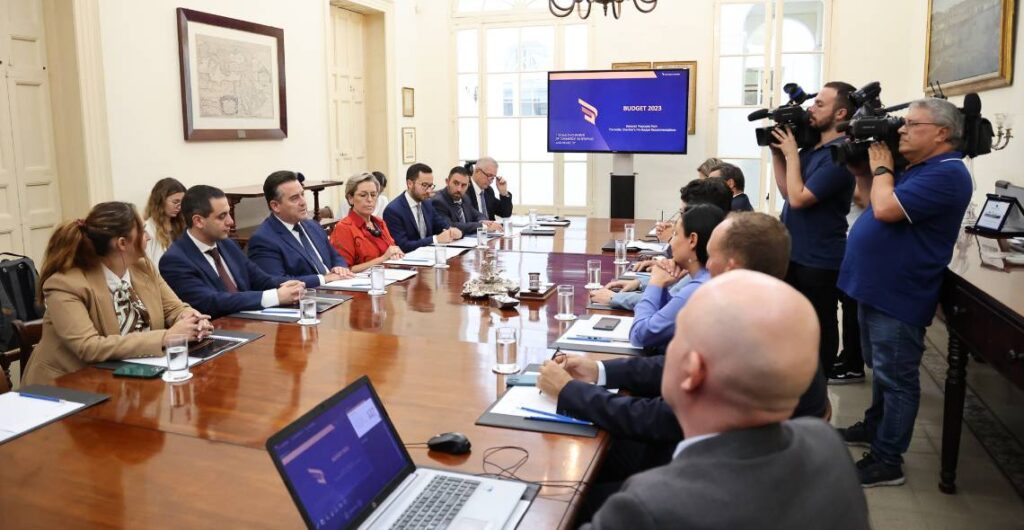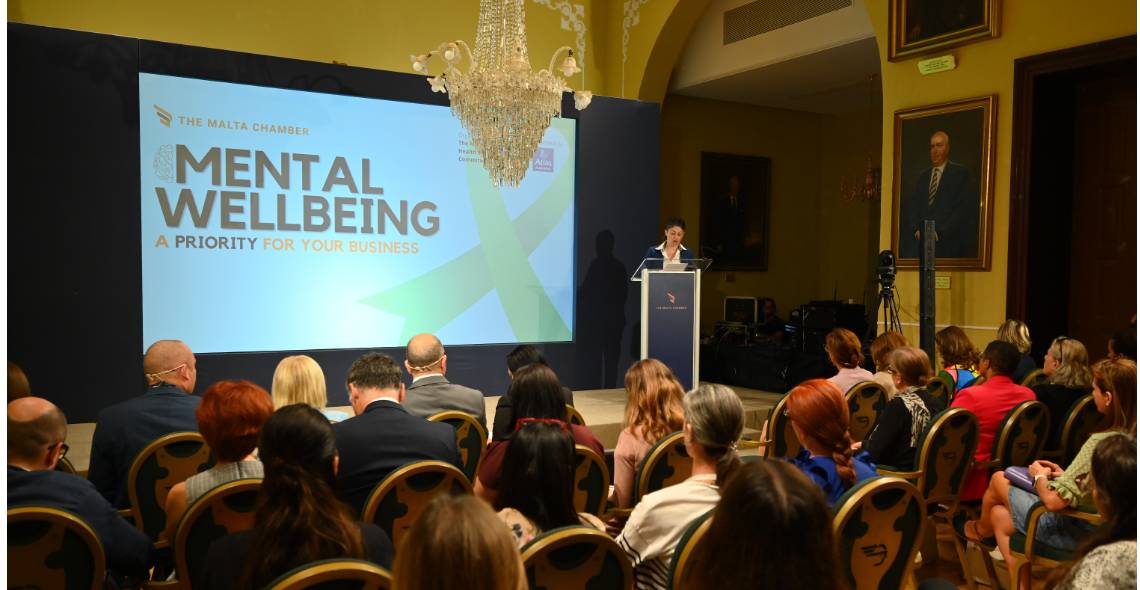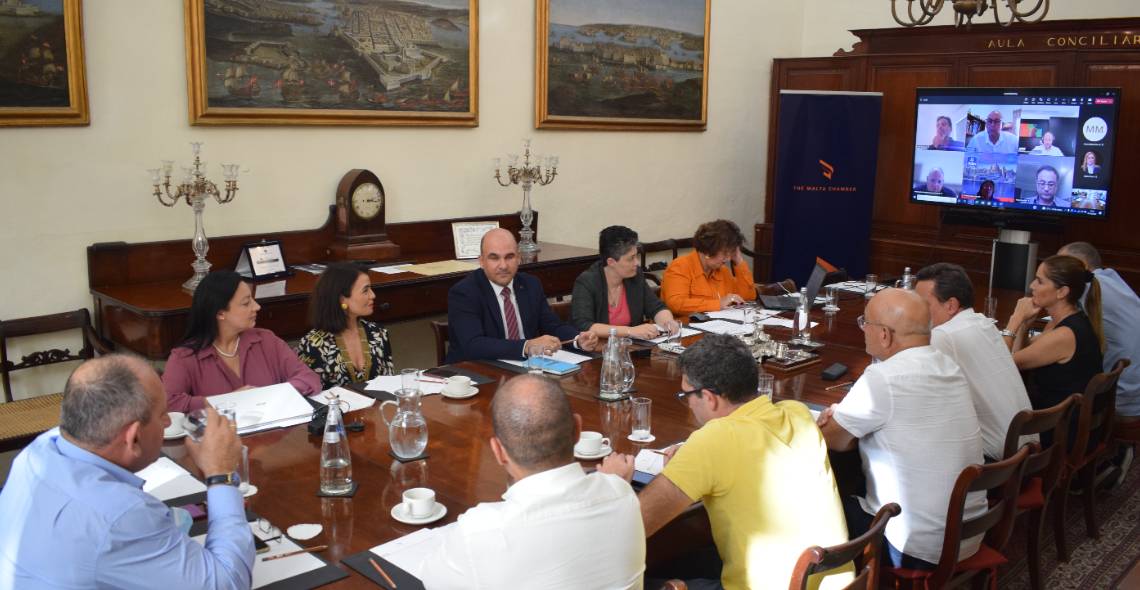The Retail Business Section will support The Malta Chamber to be the true voice of the sector
The Malta Chamber of Commerce, Enterprise and Industry has launched a new business section dedicated to retail.
The Retail Business Section will support The Malta Chamber to be the true voice of the sector in Malta to:
– facilitate business operations in Malta
– pro-actively address policy issues with tangible recommendations
– uptake opportunities deriving from digitalisation and sustainability transition
– ensure that mutually trusted relationship with customers remains central and
– aligns practices to a fast-evolving changing consumer behaviour and expectations.
The Retail Business Section will be made up of the following members:

Malcolm Camilleri – Chair
Mr Malcolm Camilleri is the Deputy Chief Executive Officer of PG plc, a listed Maltese company which holds a leading market position in the FMCG sector as well as the local textile industry.
A Certified Public Accountant and a fellow Member of both the Institute of Accountants and Association of Chartered Certified Accountants, he sits on the Board of Directors of various PG plc owned companies.
Mr. Camilleri joined PG Group in 2006 as Chief Financial Officer following a 3-year experience at an audit firm. His expertise includes business development, auditing, strategic planning, financial accounting and business analysis. He is also a resourceful individual and the company’s driving force in generating new ideas and devising feasible solutions to more efficient operational processes while maintaining a positive and proactive attitude.
Nick Spiteri Paris – Deputy Chair
Nick Spiteri Paris is the Chief Executive Officer at Bigbon Group. With over 15 years of experience working with a number of world leading brands in the fashion retail sector, Nick has vast experience in both franchising and the local retail market.
A passionate advocate for omni-channel retailing, Nick has piloted several initiatives driving Bigbon Group towards a fully integrated approach to offer customers a unified shopping experience across online and offline channels.
Andrew Abela
Andrew Abela joined his family business “Franks Stores” upon graduating from the University of Malta in Philosophy and Anthropology.
His main passion is helping his company grow in a thriving market across its multi- brand local retail branches.
Andrew was eager to join the Chamber to help find new avenues for growth for the retail business and bring about positive change.
Jonathan Shaw
Transforming ideas into reality, driving projects, finding solutions, connecting people and adding value is key for Jon. Having his first start-up whilst still at university, Jonathan has substantial experience in management with a hands-on multi-disciplinary approach in setting up and running businesses. His skills in communication, leading teams and creative spark adds value to clients, top management, board of directors and shareholders. Jonathan has worked in various sectors starting with event management, Tv production, marketing, online travel and retail. In June 2020, Jonathan was asked to be Chair of Retail Marketing Ltd and drive the group’s merger and rebrand of a number of supermarkets to Welbee’s Supermarkets.
The recent appointment of CEO resulted through a natural progression of working closely with the board of directors and the company’s c-levels and top management. Jonathan has a Bachelor of Commerce and a Masters in Business Administration.
Owen Lee
Having been brought up working within the shops from a very young age, at every level in a typical family business setup, Owen officially joined Centro Management as a managing director after finishing his Studies and obtaining his Warrant as a Certified Public Accountant.
Today his focus within the business is on finance and business development having been instrumental in setting up the company’s corporate structure. Having worked within the small-business retail industry for practically all his life, Owen has gained vast experience to understand the needs and wants of the Maltese retailer.
Ritianne Grech
Ritianne initiated her retail career at the age of 16 when she worked with Hudson’s home-grown concept, Urban Jungle. She later occupied roles in retail management for various high street fashion brands including Arkadia Marketing Limited. In 2011, she re-joined Hudson Group as Brand Manager and was shortly promoted to Retail Operations Manager where she oversaw the day-to-day operations of the stores managed by Hudson in Malta. She was later appointed as a Director of Hudson Malta Sales. As Country Manager she is now responsible for the following areas: Wholesale, Retail, Team sport, Marketing, and Maintenance. Ms Grech has been instrumental in elevating the local retail landscape and introducing Malta to world-renowned brands.
Hudson is the leading fashion and sports retailer in Malta with brands such as NIKE, Ted Baker, River Island, New Look, Intersport, Urban Jungle, Urban Bratz, Kiabi, Mango, Tommy Hilfiger, Armani Exchange, Mango and Calvin Klein. It also has its own Malta online store, hudsonstore.com, launched in 2020. It is also present in Italy through Urban Jungle and BlackBox as well as in Cyprus with Kiabi.
Hudson is also a significant operator in the international field. In total, Hudson currently manages over 30 stores in Malta, and another 30 stores spread across Africa and Southern Europe including Algeria, Morocco, Nigeria, Cyprus and Italy. By the end of 2022, the group will open an additional 17 new stores in all its territories.
The group’s head office in Malta, with supporting offices in Italy, Cyprus, Algeria, Morocco and Nigeria.
Sarah Zammit Cutajar
Ms Sarah Zammit Cutajar joined the family business at 19, when she applied for the position of secretary to the Sales and Marketing Director.
With meritocracy inscribed in the company’s code of practice, Sarah worked her way up over the years to the position of CEO, which she holds today. A firm believer in working towards lasting change, Sarah’s objectives are to make the company one that is more sustainable – from constantly perfecting her team’s work-life balance, to contributing to a better world in terms of P.Cutajar’s footprint.
“My role is to guide people and to listen. I do consider myself a leader and I don’t like to take a decision without listening or hearing what people have to say. I like to speak to everybody on the team – whoever they may be. Interaction with my staff is essential.”










